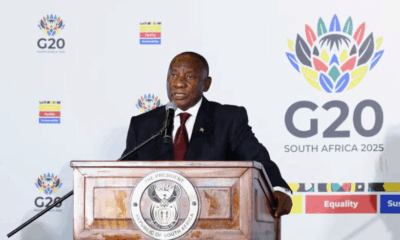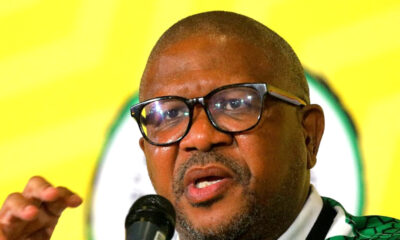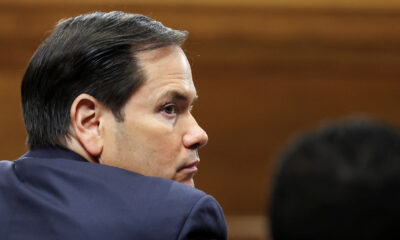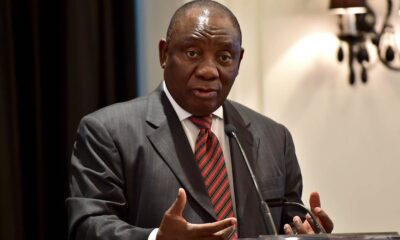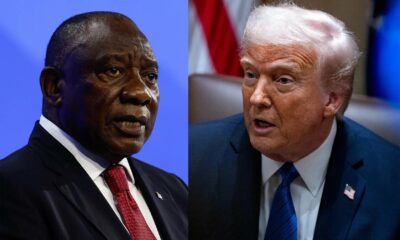News
White Farmers, Washington and the Weight of Words: How US Claims Are Reshaping South Africa’s Global Standing
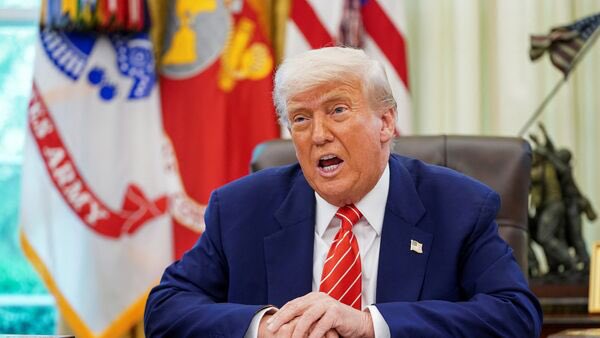
America’s accusations are not just stirring old wounds, they’re shifting international policy and hardening trade tensions.
South Africa is once again in Washington’s crosshairs. And this time, the political fallout is threatening more than diplomatic niceties, it’s hitting our exports, aid, and national reputation.
The US State Department’s Bureau of Democracy, Human Rights and Labor (DRL) has revived a decades-old, controversial claim: that white farmers are being systemically targeted in South Africa. And this time, the accusation is being echoed at the highest levels of US government, with President Donald Trump, now in his second term, halting aid to South Africa and slapping a 30% tariff on our exports.
From Old Narratives to New Policy
Let’s be clear: these claims aren’t new. They’ve existed on the fringes of far-right media in the US and Europe for years. But what’s different now is that they’ve gone mainstream, officially.
According to the DRL, the bureau visited South Africa earlier this year to “learn more” about rural crime and farm attacks. In a statement released late last week, they said these are “not ordinary crimes” and added that many cases involve “disproportionately elderly” victims, brutal assaults, and police response delays.
“In some instances, people are tortured or killed and nothing is even stolen,” the bureau said, citing 296 farm attacks and 49 murders in 2023, with 55 murders already reported in 2024. They argue this violence is not merely the result of economic desperation, but something more calculated.
The Ramaphosa Government Pushes Back
President Cyril Ramaphosa’s administration hasn’t minced words in response. The government has slammed the idea of a white genocide as dangerous misinformation, and maintains that while South Africa battles high crime rates, the majority of victims are Black South Africans, especially in informal settlements and under-policed communities.
“Our crime problem is real, but not racial,” said one senior official from the Department of International Relations and Cooperation (DIRCO), who hinted at a diplomatic briefing scheduled for Monday to counter the narrative and update the public on trade talks with the US.
The Department of Trade, Industry and Competition is also expected to address the 30% tariff wall imposed by Trump, a move many see as retaliatory, rooted less in economic logic than political messaging.
The Politics Behind the Claims
Trump’s administration is no stranger to hardline rhetoric. In his first term, he tweeted about “the large-scale killing of farmers” in South Africa, causing global outrage. That tweet was based on a TV segment from a US network aligned with far-right ideologies.
Fast forward to 2025, and Trump appears to be doubling down, citing concerns about discrimination against South Africa’s white minority as justification for freezing aid and raising tariffs.
The irony? While Washington paints South Africa as hostile to its white citizens, most white South Africans continue to benefit from private security, formal employment, and land ownership, privileges many Black and Coloured citizens still struggle to access.
Brutal Rural Reality: What the Data Does and Doesn’t Say
To be fair, rural violence is real, and many of the attacks are horrific — and yes, often targeted at white or elderly farmers. But experts argue the root causes are complex, tied to land inequality, security gaps, organised crime, and poverty, not race alone.
South African Police Service (SAPS) figures do show farm murders, but not by race of the victim or perpetrator, making it difficult to support claims of targeted white attacks with conclusive data. What is clear is that violence in rural areas is rising, and policing is failing, full stop.
Public Reaction: Divided and Defensive
On the ground, South Africans are torn.
Some farming communities, especially in the Free State and parts of Limpopo, say they feel abandoned by the state, echoing long-standing frustrations around under-resourced rural policing.
But others see the US narrative as race-baiting and politically opportunistic. Social media platforms are buzzing with reactions. On X (formerly Twitter), hashtags like #NoToWhiteGenocideNarrative and #FarmSafetyForAll are trending side by side, a reflection of a deeply polarised national mood.
Political parties, too, are split. The Freedom Front Plus welcomed the US’s attention to rural crime, while the EFF and ANC labelled Trump’s moves as neo-colonial interference.
A Wake-Up Call Or a Smokescreen?
What’s getting lost in the noise is perhaps the most pressing question: What’s the actual plan to make South Africans all of us, safer, regardless of race or rural postcode?
Crime in South Africa is a national emergency. But turning it into a racial talking point on the global stage risks not just our trade and diplomacy, but also our social cohesion.
South Africa has economic and geopolitical weight, the DRL acknowledged. But its future and its relationship with powerful partners like the US, will depend not just on how we respond to violence, but also on how we tell our story to the world.
For now, that story is being written by others and it comes with a steep price.
{Source: IOL}
Follow Joburg ETC on Facebook, Twitter , TikTok and Instagram
For more News in Johannesburg, visit joburgetc.com



